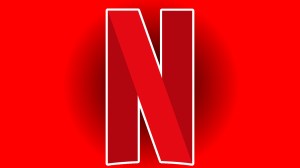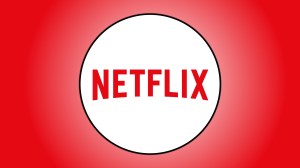A leaked version of Dungeons & Dragons new Open Game License has many worried about the future of the tabletop roleplaying game’s ecosystem. For weeks, rumors have swirled about Wizards of the Coast’s plans for the Open Game License (OGL), a license that allows third-party creators and publishers to use Dungeons & Dragons rules and mechanics in their own work. Last month, Wizards of the Coast released a statement detailing a framework for an upcoming “update” to the OGL, which included a royalty fee for creators who made more than $750,000 in revenue off of works that used the new OGL.
Videos by ComicBook.com
This week, the D&D video channel Roll for Combat and Linda Codega of io9 both reported on a version of the OGL 1.1 dated in early December. The reported new OGL is significantly more restrictive than the previous OGL and also claims to de-authorize the previous OGL, which means that publishers like Paizo, Critical Role’s Darrington Press, Matt Colville’s MCDM, and Green Ronin Publishing, would be forced to opt into the new OGL in order to continue publishing OGL work. Previous “updates” to the OGL specifically noted that creators could continue to use older versions of the OGL, which seems to be off the table with the OGL viewed by io9.
The new OGL provides Wizards of the Coast with a greater level of control over third party D&D and D&D-derived content, with Wizards able to revoke a license in the case of clear bigoted content and specifying that NFTs and blockchain technology are not covered by the license. However, the OGL also requires creators to register all OGL licensed work with Wizards and grants Wizards a “nonexclusive, perpetual, irrevocable, worldwide, sub-licensable, royalty-free license” to use content created under the OGL for any purpose. Additionally, Wizards also reserves the right to change or terminate the OGL with just 30 days notice.
While Wizards of the Coast has yet to release the new OGL publicly, at least one part of the OGL was confirmed today by Kickstarter executives. The OGL notes that creators who use Kickstarter to fund their projects will only have to pay a 20% royalty on revenue over $750,000. Kickstarter executive Jon Ritter confirmed that it worked with Wizards of the Coast to negotiate the lower royalty fee for Kickstarter revenue, hoping to soften the blow to creators on the platform.
Although it’s debatable whether earlier versions of the OGL can actually be revoked or deauthorized (one of the creators of the original OGL stated to ENworld that the OGL could not be revoked, no matter what Wizards now says), the intent of the new OGL is to force publishers to comply with the new OGL, with its easily revokable status and its tiered royalty structure. Wizards specifically mentions in the new OGL that the Open Gaming License was never intended to “subsidize major competitors,” a not-so-veiled reference to companies like Paizo, whose Pathfinder game system overtook Dungeons & Dragons for several years during the so-called “Edition Wars” era of the game.
If the OGL viewed by io9 is indeed the final OGL planned for One D&D, it would have seismic consequences for the thriving ecosystem that surrounds Dungeons & Dragons. A large portion for Dungeons & Dragons’ dominance in the tabletop roleplaying game space was due to the OGL and the encouragement of making derivative material using D&D rules. And while there are many popular games that don’t use D&D’s OGL, hobby store trade publication ICV2 notes that the top three RPGs as of summer 2022 were either Dungeons & Dragons or works published under the OGL. (The fourth and fifth most popular RPGs are both properties owned by Wizards of the Coast parent company Hasbro but licensed to Renegade Games Studio.)
And while Wizards of the Coast claims that less than 20 “creators” will be impacted by their new royalty structure, those creators employ hundreds of designers, artists, and other employees who have made a full-time career within the tabletop roleplaying game industry. Many current Wizards of the Coast employees once worked for companies who published works under the OGL, gaining valuable experience at the time. While Hasbro increasingly views Dungeons & Dragons as one of its top brands, the game itself became what it is today in part because of a non-restrictive OGL.
While the reported new OGL is worrisome, we’ll note that Wizards of the Coast has yet to actually release the new OGL for creators to view. io9 notes that the document it viewed was dated in early December and was scheduled for release on January 4th, a timeframe that has obviously passed. This could indicate that Wizards is still working out the nuances of their new OGL, or are actively listening to the (mostly negative) feedback caused by today’s leak. In the meantime, several creators have told ComicBook.com that they’ve put their upcoming D&D projects on hold while waiting to see what the new OGL entails for them and whether it would even be profitable to move forward with them.









